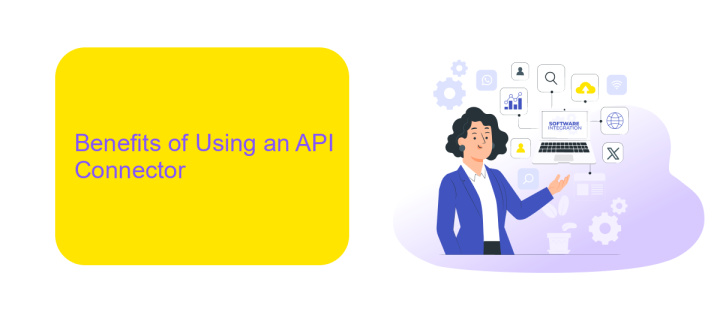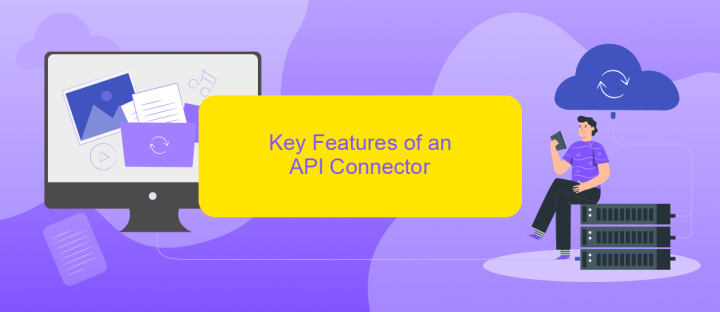What is an API Connector
An API Connector serves as a crucial tool in modern software development, enabling seamless communication between different applications and services. By acting as a bridge, it facilitates data exchange and functionality integration, streamlining processes and enhancing efficiency. Understanding API Connectors is essential for developers looking to optimize workflows, improve user experiences, and harness the full potential of interconnected digital ecosystems.
What is an API Connector?
An API Connector is a software tool that enables seamless communication between different software applications by facilitating the exchange of data through Application Programming Interfaces (APIs). It acts as an intermediary, allowing applications to interact with each other without requiring extensive custom coding. This integration capability is crucial for businesses looking to streamline operations and enhance productivity by connecting various software systems.
- Facilitates data exchange between disparate systems
- Reduces the need for manual data entry
- Enhances system interoperability and efficiency
- Supports a wide range of applications and platforms
- Enables real-time data synchronization
By using an API Connector, organizations can automate workflows, improve data accuracy, and reduce operational costs. This tool is essential for modern businesses that rely on multiple software solutions to manage their operations. With its ability to integrate various applications effortlessly, an API Connector helps companies stay competitive by ensuring that their systems are always up-to-date and working harmoniously together. As digital transformation continues to evolve, the role of API Connectors becomes increasingly vital in achieving seamless connectivity across platforms.
Benefits of Using an API Connector

API connectors offer significant advantages by streamlining the integration process between various software applications. They eliminate the need for complex coding, allowing businesses to connect different systems effortlessly. This ease of integration not only saves time but also reduces the cost associated with hiring specialized developers. With API connectors, companies can automate workflows, ensuring that data flows seamlessly across platforms, enhancing productivity and reducing the risk of human error.
Moreover, API connectors like ApiX-Drive provide a user-friendly interface, enabling even non-technical users to set up and manage integrations with ease. This accessibility democratizes the integration process, empowering teams to customize their tech stacks according to their specific needs. By facilitating real-time data exchange, API connectors ensure that businesses can make informed decisions quickly. Additionally, they enhance scalability, allowing organizations to adapt and grow their digital ecosystems without significant infrastructure changes. Overall, API connectors are a vital tool for modern businesses seeking agility and efficiency in their operations.
Key Features of an API Connector

An API connector serves as a vital tool for seamless data exchange between different software applications, enhancing their interoperability and functionality. It acts as a bridge, enabling communication between disparate systems, thereby streamlining processes and improving efficiency. API connectors are essential for businesses looking to integrate various platforms and services, facilitating a cohesive digital ecosystem.
- Ease of Integration: API connectors simplify the integration process, allowing for quick and straightforward connections between applications.
- Data Synchronization: They ensure real-time data synchronization, keeping information consistent across platforms.
- Scalability: API connectors are designed to handle growing data and user demands, supporting scalability as business needs evolve.
- Security: They incorporate robust security measures, safeguarding data during transmission between systems.
- Customization: API connectors offer customizable options to tailor integrations according to specific business requirements.
By leveraging these features, organizations can optimize their operations, reduce manual tasks, and enhance user experiences. The strategic use of API connectors enables businesses to adapt swiftly to technological advancements and market changes, maintaining a competitive edge in the digital landscape.
How to Choose the Right API Connector for Your Needs

Choosing the right API connector is crucial for seamless integration and efficient data exchange between systems. Start by identifying your specific needs and the functionalities you require. Consider the types of data you need to connect, the frequency of data transfer, and any security requirements.
Next, evaluate the compatibility of the API connector with your existing systems. Ensure it supports the platforms and software you currently use. It's also essential to assess the ease of use and the level of technical expertise required for implementation and maintenance.
- Scalability: Can the connector handle increased data loads as your business grows?
- Support: Does the provider offer reliable customer support and documentation?
- Cost: Is the pricing model sustainable for your budget?
- Security: Does it comply with industry standards and regulations?
Finally, consider testing the API connector with a trial or demo version. This hands-on experience will help you understand its capabilities and limitations. By carefully evaluating these factors, you can select an API connector that best meets your business requirements and enhances your system's performance.
Best Practices for Using an API Connector
When using an API connector, it is crucial to ensure secure and efficient data exchange between systems. Start by thoroughly reviewing the API documentation provided by the service you are integrating with. This will help you understand the required endpoints, authentication methods, and data formats. Implement authentication protocols, such as OAuth or API keys, to protect sensitive information and prevent unauthorized access. Regularly update your API connector to accommodate any changes or enhancements in the API, ensuring continued compatibility and functionality.
Testing is another vital practice when working with API connectors. Use testing environments to simulate real-world scenarios and identify potential issues before deploying the integration in a live setting. Tools like ApiX-Drive can simplify this process by providing pre-built connectors and a user-friendly interface to manage integrations. Additionally, monitor the performance and reliability of your API connections, setting up alerts for any disruptions or anomalies. By following these best practices, you can maintain robust and secure integrations that support your business operations effectively.
FAQ
What is an API Connector?
How does an API Connector work?
Why would I need an API Connector?
Can I use an API Connector without coding skills?
What are some common use cases for API Connectors?
Strive to take your business to the next level, achieve your goals faster and more efficiently? Apix-Drive is your reliable assistant for these tasks. An online service and application connector will help you automate key business processes and get rid of the routine. You and your employees will free up time for important core tasks. Try Apix-Drive features for free to see the effectiveness of the online connector for yourself.

